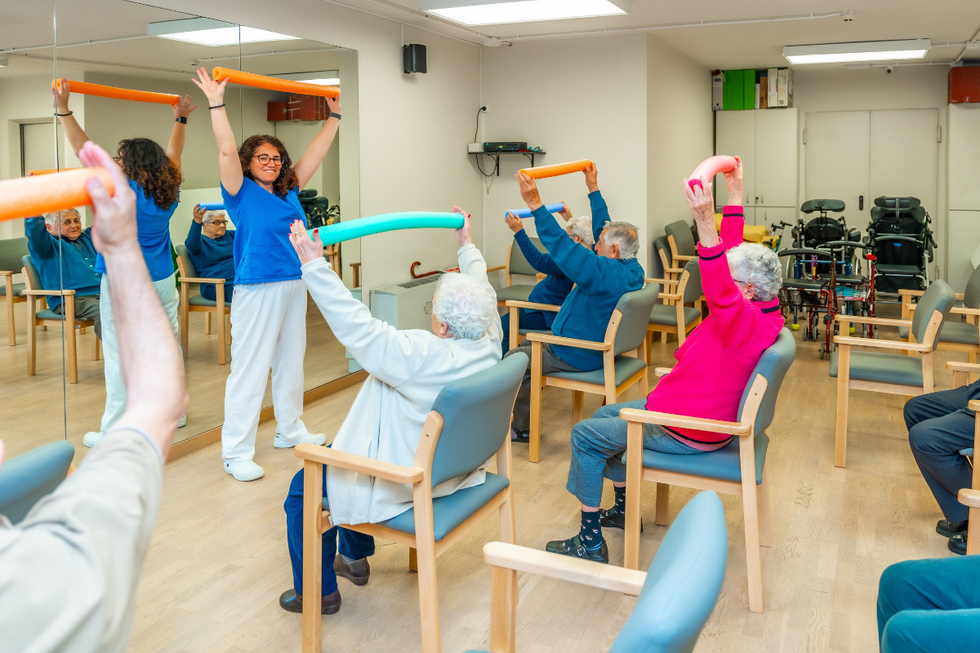How to live longer: Doctor outlines 'most effective lifestyle change' to shrink dementia risk by 40%
A multitude of simple lifestyle changes has been associated with diminished chances of developing dementia, a longevity expert told GB News
Don't Miss
Most Read
Regular physical activity stands as one of the most powerful lifestyle changes for diminishing the risk of developing dementia, according to a longevity expert.
Speaking to GB News, Dr Mohammed Enayat revealed that incorporating aerobic exercise can slash the likelihood of acquiring the brain-robbing disease by 40 per cent.
"One of the most effective changes individuals can make is incorporating regular physical activity, particularly aerobic exercise, which has been shown to improve memory and stimulate the release of brain-derived neurotrophic factor (BDNF), a key molecule involved in neurogenesis and synaptic plasticity," he said.
His guidance draws on a 2018 study published in Neurology, which found that moderate to high levels of physical activity were associated with a significant reduction in dementia risk.

The brain-boosting effects of exercise extend beyond simple physical fitness too
|GETTY
The brain-boosting effects of exercise extend beyond simple physical fitness. Research published in Frontiers in Neuroscience confirms that exercise benefits are "likely driven by increased metabolic activity, cerebrovascular mechanisms, and neuroplasticity throughout the brain".
The study's researchers noted: "The cognitive improvements associated with exercise are likely driven by increased metabolic activity, cerebrovascular mechanisms, and neuroplasticity throughout the brain."
Dr Enayat emphasised that aerobic exercise specifically triggers the release of brain-derived neurotrophic factor (BDNF), a crucial molecule that promotes the growth of new brain cells and strengthens connections between them.
The Frontiers in Neuroscience researchers concluded their systematic review by highlighting "the promise in, and need for, high-quality trials integrating cognitive and brain function measures to elucidate the functional relationship between exercise and brain health in populations with a high risk of dementia".
LATEST DEVELOPMENTS:
The Alzheimer's Society emphasises that physical activity does not have to involve formal exercise programmes and can even be fulfilled by day-to-day chores.
"One study found that daily physical tasks such as cooking and washing up can reduce the risk of Alzheimer's disease," the charity's experts said.
Meanwhile, beyond exercise, diet can play an equally crucial role in protecting cognitive function, with specific eating patterns showing remarkable results.
Dr Enayat said the Mediterranean-style diet, "rich in leafy greens, oily fish, olive oil, and nuts", has been linked to slower cognitive decline.
The MIND diet, a combination of Mediterranean and DASH approaches, which "was specifically designed to target brain health and has been associated with a 53 per cent reduction in Alzheimer's risk in those who adhered to it rigorously".

Diet can play an equally essential role in defending cognitive function, with certain eating patterns showing remarkable results
|GETTY
Beyond whole foods, Dr Enayat recommended targeted supplementation, explaining: "Regular intake of omega-3 fatty acids (particularly DHA), magnesium L-threonate, and lion's mane mushroom (a nootropic adaptogen studied for its ability to support nerve growth factor) can support cognitive resilience."
Emerging dietary strategies like intermittent fasting and time-restricted eating also show promise for their neuroprotective effects.
Sleep quality emerges as another critical factor in dementia prevention. Dr Enayat explained that "during deep sleep, the brain's glymphatic system becomes highly active, clearing neurotoxic waste such as beta-amyloid".
Poor sleep has been repeatedly linked with increased Alzheimer's disease risk so "consistent bedtimes, limiting blue light exposure, and reducing stimulants like caffeine" can yield long-term brain benefits, the medic proclaimed.
Dr Enayat also stressed the importance of "regular social interaction, mental stimulation (e.g. learning new skills, brain games), and stress reduction via mindfulness or breathwork" in maintaining cognitive health.











